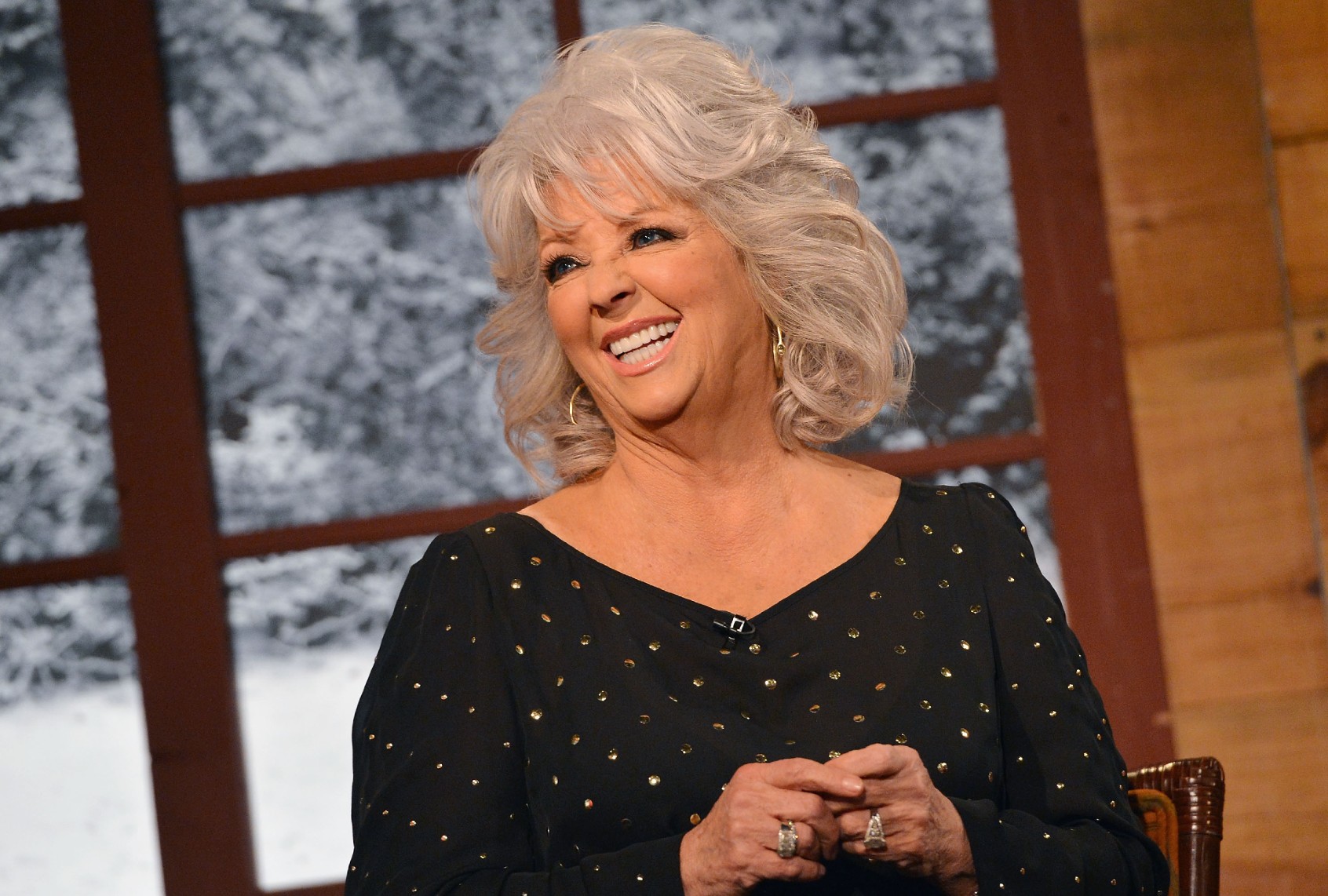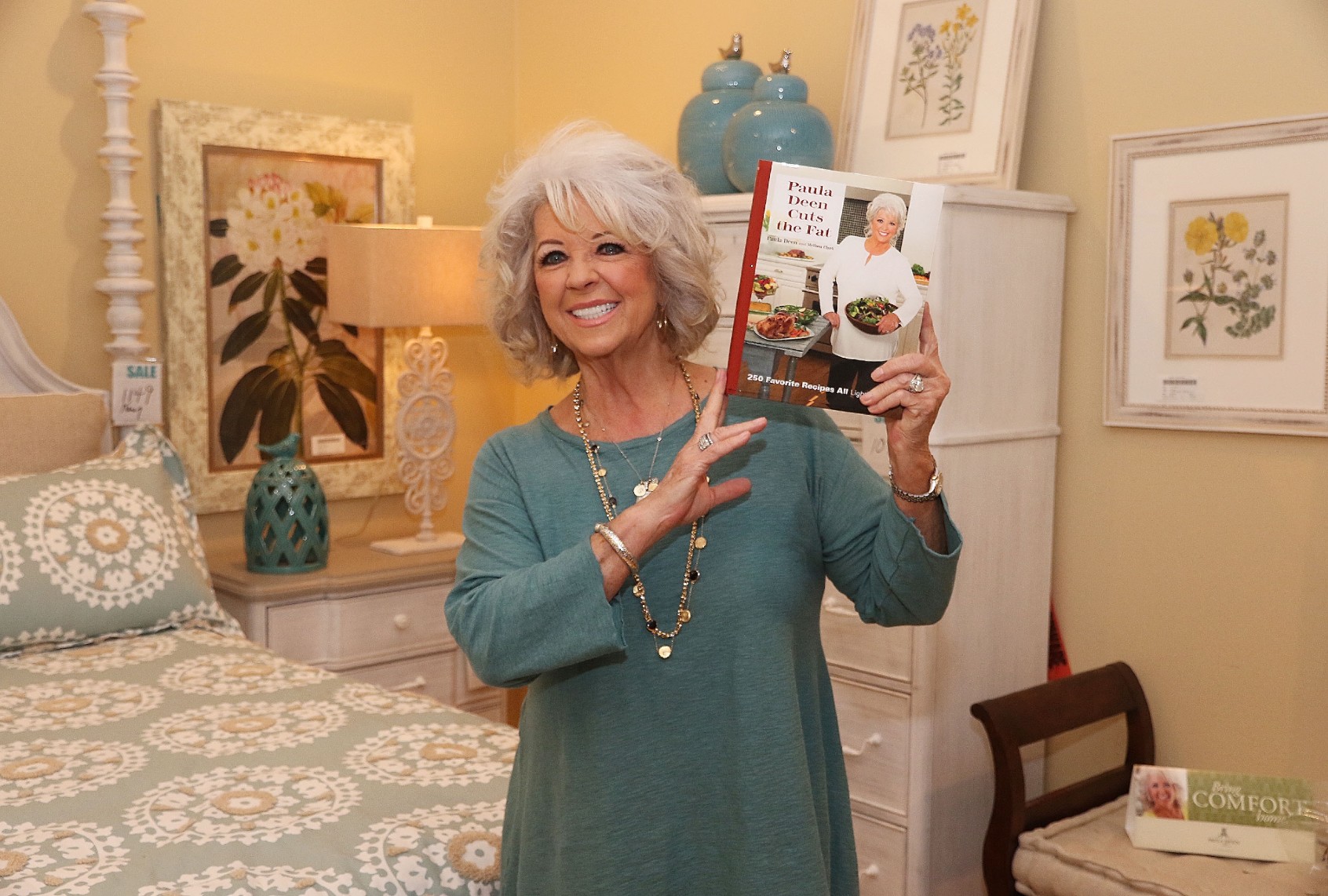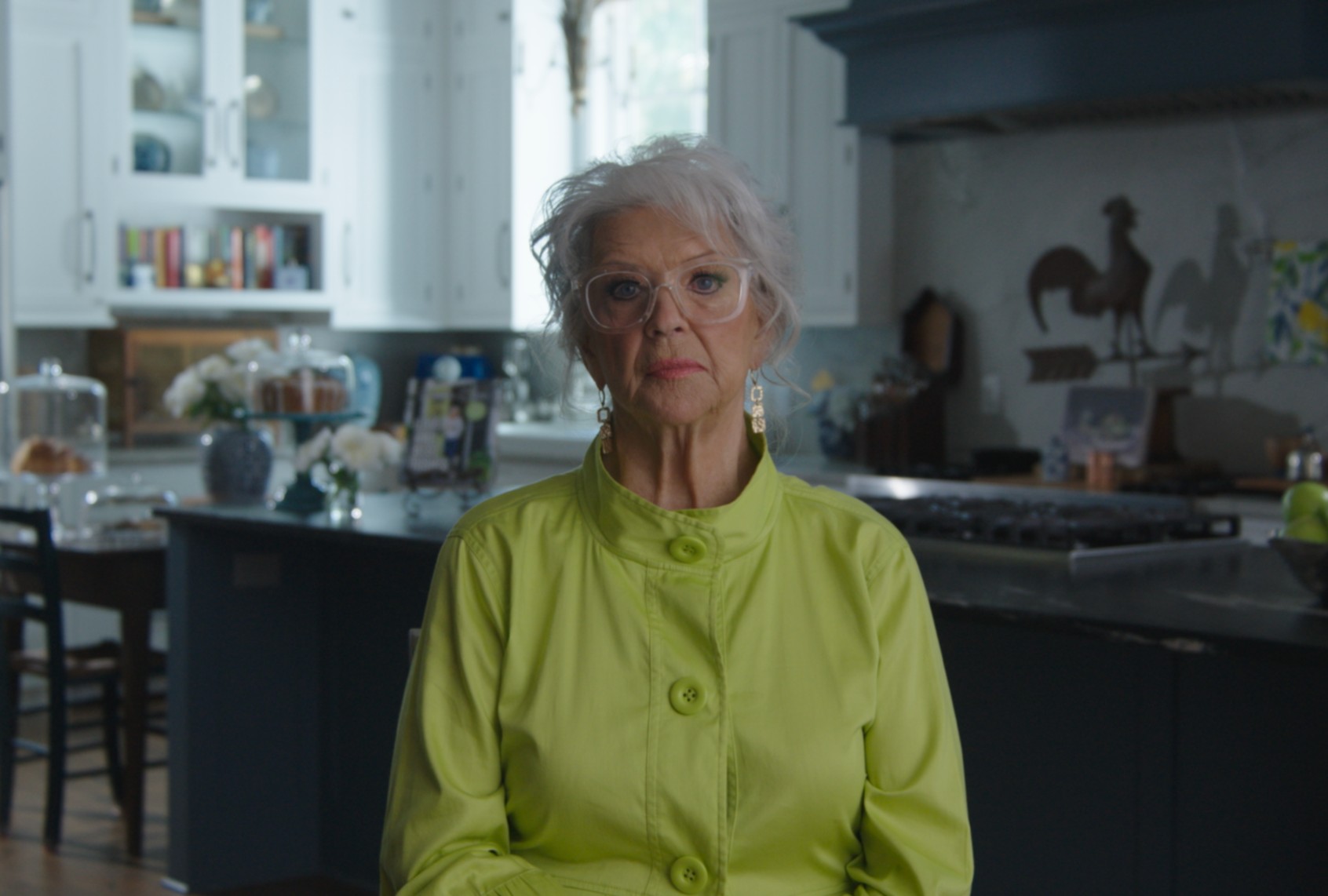Let the record show, I know it’s not kind to laugh at another person’s misfortune. But schadenfreude is the American way, especially if it happens on national television. So, when disgraced celebrity chef Paula Deen’s tearful apology on the “Today Show” in 2013 started making the rounds as a reaction meme online, I was forced to reckon with a tough decision: Should I be a good person, or should I laugh deliriously at this unforgettable moment of live television, removed from its context for maximum hilarity?
The clip in question sees Deen sitting in the “Today Show” studio, practically genuflecting to the camera after being grilled for 15 straight minutes on live television. When the segment aired in late June 2013, Deen’s empire was collapsing. The popular Food Network chef and beloved evangelist of Southern cooking came under fire after the press obtained a copy of a deposition she gave after being named in a racial discrimination lawsuit filed against her and her brother, Bubba, who owned and operated a restaurant in Deen’s portfolio. While the lawsuit initially made little noise in the media, Deen’s ensuing deposition, in which she admitted to using racial slurs in the past, hit like butter on a hot pan, making sizzling headlines for weeks to come. Deen hired a crisis management team to handle her apology tour, and the last stop was a segment on “Today,” where Deen never stood a chance. After being raked over the coals, Deen turned to look at the camera. “If there is anyone out there who has never said something they wish they could take back…,” Deen began (and this is where the meme comes in), “Please, pick up that stone, and throw it so hard at my head that it kills me.”
While the film doesn’t exonerate Deen as much as she’d likely hope, it provides far more context to a career-ending whirlwind than most were privy to, supplying an intriguing look at how narratives are spun between the press and the public.
As if the line weren’t already strange and abrupt, the sentence is even more nonsensical out of context. Over a decade after her queendom crumbled, Deen’s weepy apology now accompanies mundane posts about not getting a job, hangovers, forgetting to pack a hairbrush, and, in my case, watching “Brokeback Mountain” for the first time in 15 years. Like so much of her career, Deen’s plea for forgiveness was outsized and totally singular, so much so that it became fodder to convey the brief intensity of an otherwise banal annoyance. Silently, the public slowly decided that the severity of Deen’s actions wasn’t harsh enough to warrant a digital blacklisting. But is that really true? Was Deen really an early victim of the fictitious celebrity boogeyman now known as “cancel culture,” or was she appropriately harangued?
Like most prickly questions, the answer lies somewhere in the middle. And in “Canceled: The Paula Deen Story” — director Billy Corben’s new documentary premiering Sept. 6 at the Toronto International Film Festival — Deen herself is seeking the truth. The stylistically plain but undeniably fascinating film takes an intimate look at Deen’s life and career, profiling the chef and her two sons, Bobby and Jamie, as well as food world personalities and cultural critics. For those who have forgotten about Deen’s massive, global reach prior to her undoing, the movie is an eye-popping reminder of celebrity ephemerality. And for those who don’t know Deen at all, it’s an invaluable look at the nascent seeds of toxic social media that would only grow more invasive as time went on. While the film doesn’t exonerate Deen as much as she’d likely hope, it provides far more context to a career-ending whirlwind than most were privy to, supplying an intriguing look at how narratives are spun between the press and the public.
Despite years off the airwaves, Deen hasn’t exactly disappeared. She uploads daily videos to her YouTube channel, cooking up recipes like shrimp gumbo casserole and peaches and cream muffins for her nearly 600,000 subscribers to feast on. In those videos, Deen, now 78, is as full of vitality and joie de vivre as she ever was. Her passion for cooking hasn’t waned a bit, and neither has her vivacious screen presence. Seeing Deen in her element, it’s easy to remember why America fell head over heels for the sassy Southern chef in an instant: She’s as personable and witty as the aunt who drinks a little too much of the cooking wine while braising the chicken, the kind of person who would make you want to be in the kitchen, even if you can’t stand the heat.

(Slaven Vlasic/Getty Images) Paula Deen visits Fox & Friends Christmas Special at FOX Studios on December 6, 2012, in New York City.
When “Canceled” revisits Deen’s first television appearances on episodes of the Food Network series “Doorknock Dinners” with host Gordon Elliott, who appears in the doc as one of Deen’s advocates, it’s easy to see how Deen built up so much goodwill. She was honest to a fault and could connect with just about anyone, whether they were filthy rich or just managing to get by. Consumers were happy to support someone who they felt welcomed by, even through the television screen, and lined up at book signings, cookware launches and restaurant openings en masse for a chance to meet their favorite chef. Unlike celebrity chefs like Gordon Ramsay and Anthony Bourdain, who made their living on their acerbic personalities, Deen was a people-first celebrity. As her family tells it, if Deen had even one person who was unhappy at an event, it would ruin her day.
That persona was tested when Deen brought in her brother, Bubba, to run a new restaurant in Savannah, Georgia, called Uncle Bubba’s. The eatery was initially a success after it opened in 2004, but as time went on, employees reported that Bubba would be visibly drinking on the job in front of customers and watching pornography inside the restaurant. When the restaurant’s former general manager, Lisa Jackson, brought the lawsuit against Bubba and Deen in 2013, the press was quick to make their way through the suit and the case’s subsequent depositions. As Deen and her sons recall in the documentary, the counsel Deen retained for her defense was local and not experienced in high-profile cases, and as such, were incapable of adequately defending Deen. When “Canceled” details the firestorm that followed, the amount of incompetence on display is shocking.
After spending much of the film chronicling the rise of her business, it’s not entirely believable that Deen would crumble under intense legal pressure. You don’t become a household name with a multimillion-dollar empire without showing some resolve along the way.
During the deposition, Deen’s lawyers didn’t object to a single line of questioning, which would be standard practice in high-profile, multimillion-dollar cases where the plaintiff’s suit could result in defamation. And after the deposition was obtained by the press, Deen’s crisis team quickly concocted three different apologies. Recalling the chaos in the documentary, Deen gets verklempt remembering the pressure she felt she was under. The efficacy of Deen’s waterworks will depend on how much the viewer is willing to buy. After all, Deen could’ve avoided all of this by simply settling the lawsuit up front, which members of her team begged her to do, and only taken a cool $1.25 million hit from her riches. But as the question of Deen’s business savvy comes into question, “Canceled” cleverly switches gear, diving into an anecdote about Deen’s life pre-fame, enduring an abusive marriage and suffering from intense agoraphobia. It’s a smart bit of manipulation on Corben’s part, but Deen’s legacy is all true. Her story is a rags-to-riches tale, and her offenses don’t negate the struggles of her past.
Still, it’s frustrating that the doc doesn’t prod Deen more, which would allow more opportunities to explain why she didn’t speak up for herself during the deposition and disagreements with her crisis management team. After spending much of the film chronicling the rise of her business, it’s not entirely believable that Deen would crumble under this kind of legal pressure. You don’t become a household name with a multimillion-dollar empire without showing some resolve along the way. But Corben’s light touch ultimately works for the film’s narrative, focusing on the people-pleasing side of Deen that Americans fell in love with. It makes sense, then, how Deen was roped into recording multiple apology videos, which were mistakenly uploaded with little time between each other, only to be quickly yanked from YouTube.

(Aaron Davidson/Getty Images) Paula Deen signs copies of her book during her “Cuts the Fat” Book Tour on January 30, 2016, in Boca Raton, Florida.
The slapdash apology videos made Deen into a joke, one she tried to get in front of during that “Today Show” appearance, only to make matters worse. Critics and audiences were done with Deen, refusing to look critically at her defense, which was that she grew up in the 1960s at the start of Southern integration, and that unlearning language took time. But “Canceled” starts asking interesting questions when it focuses on the severity of Deen’s demise and the hypocrisy surrounding it. Black celebrities like Al Sharpton and Tracy Morgan called for accountability in Deen’s case, not total destruction. And historian and writer Michael W. Twitty, interviewed for the documentary, presents a nuanced argument that looks critically at Deen without leveraging more punches. Then there’s the matter of the “Today Show” interview, which was conducted by Matt Lauer just years before his own cultural annihilation. The irony allows Corben, Deen, and co. to ponder exactly why it is that celebrities like Mel Gibson are allowed to make a comeback after firing off racial and antisemitic slurs in a recorded tape, but Deen isn’t because she admitted to having used a slur, sometime in the distant past, and entirely off the record.
“Canceled” never quite answers this question explicitly, even though the very relevant topic of misogyny feels within grasping distance. (And, it should be noted, the documentary skims right over a later controversy involving Deen’s son in brownface.) But the film does pose important questions about just how far social media takedowns and cultural perception have changed in the 10-plus years since Deen’s quote-unquote cancellation. Considering that someone like Donald Trump holds the most powerful seat in America, and that virulent, unapologetic, and even violent racists like Charlie Kirk and Daniel Penny are platformed or given jobs, Deen’s punishment does seem severe. There are, unquestionably, more problematic targets for the world to set its sights on. But Deen’s time came during a moment of Obama-era optimism, when it seemed for a brief, glittering moment that morality might, for once, be America’s code of conduct.
Of course, that’s all a distant memory now. And frankly, Deen’s career might be, too. Her best chance at a full-scale comeback would be to leverage right-wing support, and considering how easy that would be, it says more about Deen’s virtue that she hasn’t appealed to MAGA Trumpism than anything else in the documentary. Deen may be past the point of complete public exoneration, but at least she has integrity to help her sleep at night — no stone over the head required.
Read more
about the era of Paula Deen’s downfall


